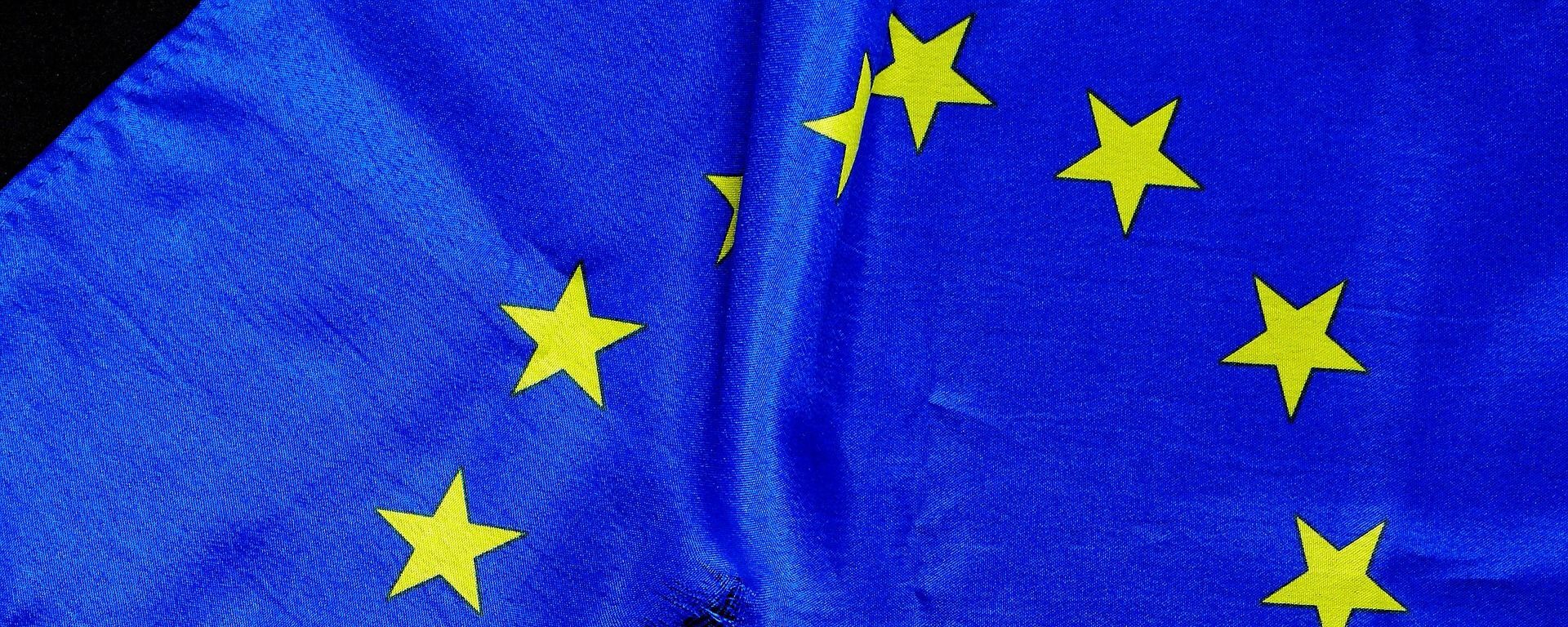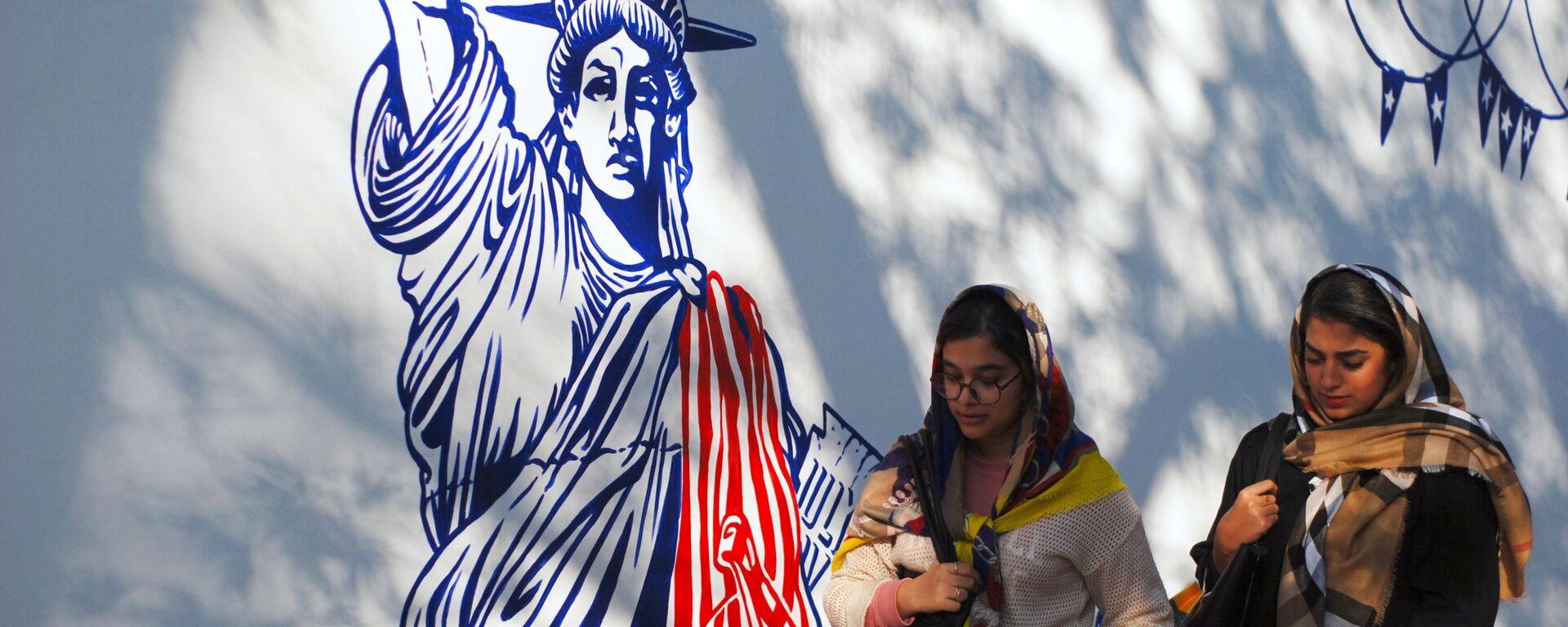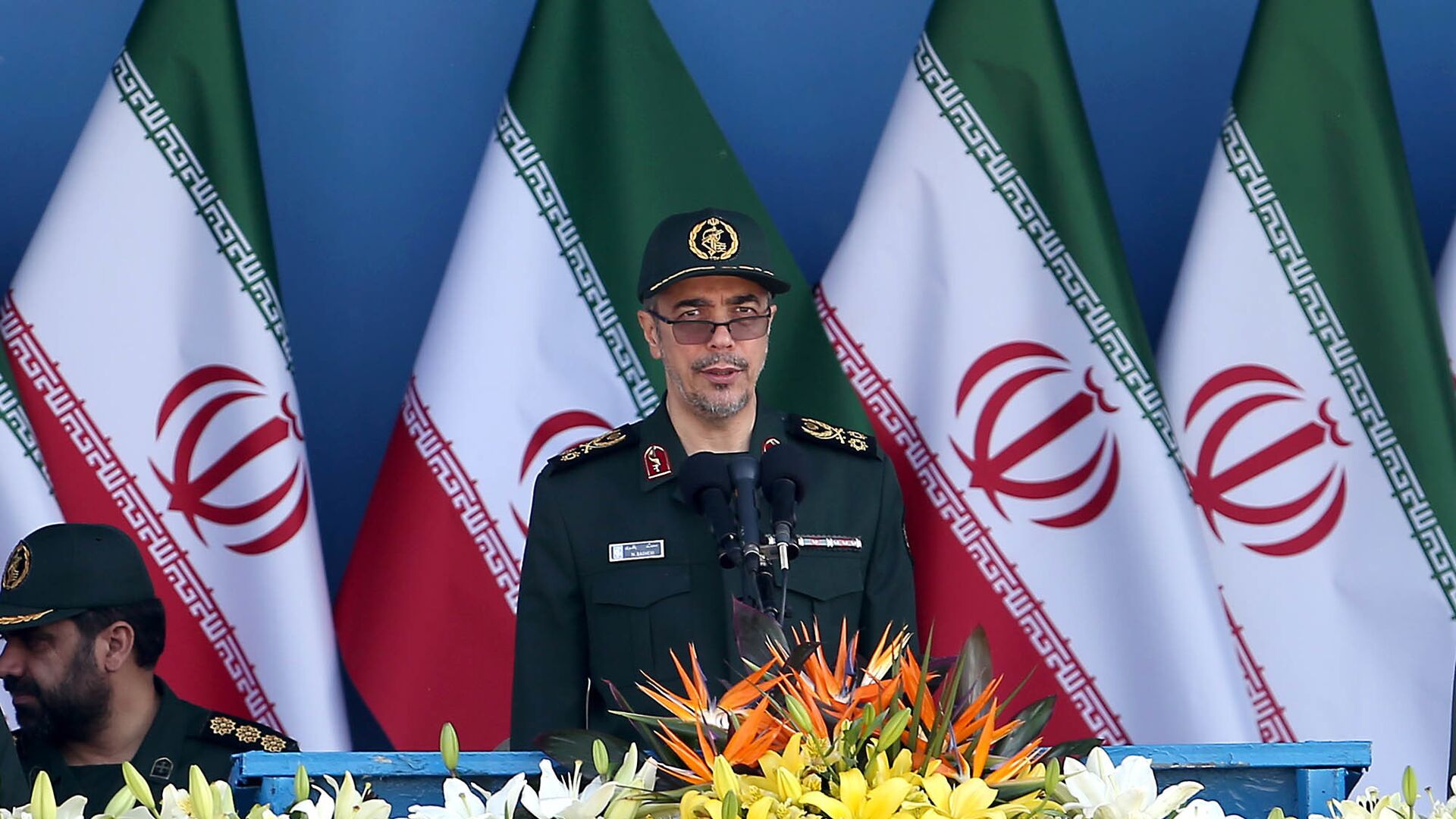https://sputnikglobe.com/20221024/irans-top-commander-tells-eu-what-it-can-do-with-his-sanctioned-assets-1102588338.html
Iran’s Top Commander Tells EU What It Can Do With His Sanctioned Assets
Iran’s Top Commander Tells EU What It Can Do With His Sanctioned Assets
Sputnik International
The European Union moved to level fresh sanctions against Tehran last week in the wake of claims that the Islamic Republic provided Russia with the drones it... 24.10.2022, Sputnik International
2022-10-24T14:54+0000
2022-10-24T14:54+0000
2023-02-09T11:44+0000
world
iran
sanctions
mohammed bagheri
russia
drones
european union (eu)
https://cdn1.img.sputnikglobe.com/img/105647/81/1056478162_0:104:2001:1229_1920x0_80_0_0_3d650c7e739ca2f45b4dee04edc7259d.jpg
Iranian Armed Forces Chief of Staff Mohammad Bagheri has told Brussels what it can do with any assets of his that it happens to find after having his name added to the bloc’s latest sanctions package.Bagheri said he "understands" why the US and the European Union have sanctioned him, "given that since the victory of the Islamic Revolution, the Armed Forces of the Islamic Republic were included in various sanctions lists, but turned this threat into an opportunity.” The officer pointed out that the dramatic advances Iran has made in building a powerful domestic defense sector have led to a situation in which foreigners who once refused to sell the Iranian military basic defense items like barbed wire are now queuing up to buy advanced weapons.Slamming the Europeans for their shortsightedness in “taking the dead end path of their American masters,” Bagheri characterized the situation as a case of the “blind leading the blind.”Bagheri was one of three senior Iranian officials and five entities leveled with new sanctions last week over the alleged supply of drones used by Russia in Ukraine. Russian and Iranian officials have each dismissed the drone claims.Dmitry Polyanskiy, Russia’s deputy permanent representative to the United Nations, assured that the UAVs used in Ukraine “are manufactured in Russia,” and emphasized that the UN Secretariat has no mandate to investigate the matter.Also last week, Iranian Ambassador to the UN Saeed Iravani similarly dismissed the drone allegations, saying Tehran “categorically” rejects such “unfounded and unsubstantiated claims.” Iranian Foreign Ministry spokesman Nasser Kanaani rejected the drone claims and stressed Iran’s neutrality in the Ukraine crisis.The drone sanctions came on the heels of separate EU restrictions introduced last week targeting 11 Iranian officials, including senior police officers and Iran’s information minister, over Tehran’s efforts to squelch the ongoing foreign-backed protests which sprang up last month after the accidental death of a young Iranian woman in morality police custody.
https://sputnikglobe.com/20221020/eu-slaps-sanctions-on-iran-for-military-assistance-to-russia-1102449714.html
https://sputnikglobe.com/20221016/washington-admits-to-aggressive-meddling-in-iran-as-tehran-recalls-1953-coup-1101906653.html
iran
russia
Sputnik International
feedback@sputniknews.com
+74956456601
MIA „Rossiya Segodnya“
2022
News
en_EN
Sputnik International
feedback@sputniknews.com
+74956456601
MIA „Rossiya Segodnya“
Sputnik International
feedback@sputniknews.com
+74956456601
MIA „Rossiya Segodnya“
iran, sanctions, mohammed bagheri, russia, drones, european union (eu)
iran, sanctions, mohammed bagheri, russia, drones, european union (eu)
Iran’s Top Commander Tells EU What It Can Do With His Sanctioned Assets
14:54 GMT 24.10.2022 (Updated: 11:44 GMT 09.02.2023) The European Union moved to level fresh sanctions against Tehran last week in the wake of claims that the Islamic Republic provided Russia with the drones it has been using to strike Ukrainian energy infrastructure and military targets. Moscow and Tehran have each separately dismissed the allegations.
Iranian Armed Forces Chief of Staff Mohammad Bagheri has told Brussels what it can do with any assets of his that it happens to find after having his name added to the bloc’s latest sanctions package.
“I have a humanitarian proposal for the European Union: From today, I give them the power of attorney in implementing the sanctions they’ve prepared, allowing them to identify and confiscate all the properties and assets belonging to Major General Mohammad Hossein Bagheri in banks around the world and use them to buy coal for Europe’s citizens, who face a tough winter ahead,” the commander quipped in a statement put out late Sunday.
Bagheri said he "understands" why the US and the European Union have sanctioned him, "given that since the victory of the Islamic Revolution, the Armed Forces of the Islamic Republic were included in various sanctions lists, but turned this threat into an opportunity.” The officer pointed out that the dramatic advances Iran has made in building a powerful domestic defense sector have led to a situation in which foreigners who once refused to sell the Iranian military basic defense items like barbed wire are now queuing up to buy advanced weapons.
Slamming the Europeans for their shortsightedness in “taking the dead end path of their American masters,” Bagheri characterized the situation as a case of the “blind leading the blind.”

20 October 2022, 10:53 GMT
Bagheri was one of three senior Iranian officials and five entities leveled with
new sanctions last week over the alleged supply of drones used by Russia in Ukraine. Russian and Iranian officials have each dismissed the drone claims.
Dmitry Polyanskiy, Russia’s deputy permanent representative to the United Nations,
assured that the UAVs used in Ukraine “are manufactured in Russia,” and emphasized that the UN Secretariat has no mandate to investigate the matter.
Also last week, Iranian Ambassador to the UN Saeed Iravani similarly
dismissed the drone allegations, saying Tehran “categorically” rejects such “unfounded and unsubstantiated claims.” Iranian Foreign Ministry spokesman Nasser Kanaani rejected the drone claims and stressed Iran’s neutrality in the Ukraine crisis.
The drone sanctions came on the heels of separate EU restrictions introduced last week targeting 11 Iranian officials, including senior police officers and Iran’s information minister, over Tehran’s efforts to squelch the ongoing foreign-backed protests which sprang up last month after the accidental death of a young Iranian woman in morality police custody.

16 October 2022, 18:03 GMT




